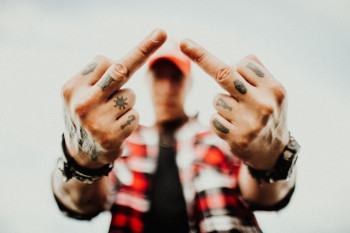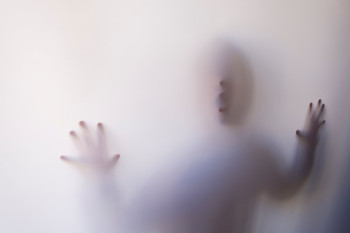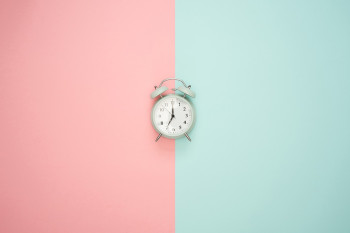© Pint of Science, 2025. All rights reserved.
Please be aware this article discusses some sensitive issues including suicide and self-injury.
They say that autism is a word which tells a million stories.
When scientists and practitioners say that, we mean that the autism spectrum is extremely varied and diverse. Autism is a neurodevelopmental condition which is written into your genes, into the very architecture of your brain. On the television screen, autism is a series of quirky, lovable men (Sam from ‘Atypical’, Sheldon Cooper from ‘The Big Bang Theory’, Shaun from ‘The Good Doctor’), rocking and flapping children without speech, or savants with seemingly magical abilities, like Rain Man. Limited as these portrayals are, they do give some idea of the range of abilities that people on the autism spectrum can possess.
Autism is a word which tells a million stories, but actually, so few of them are heard. So few of them are told by autistic people themselves. I’m a scientist based at Bournemouth University, and I’m passionate about shining a light into some less well-explored aspects of the spectrum, and of highlighting the voices of autistic people which might otherwise go unheard.
In many of the people I work with, autism is a ‘hidden disability’, a way of being that has no ‘look’, no tell-tale feature. Many autistic adults are social anthropologists in training, meticulously watching the world, figuring out ‘the rules’ and trying to fit in. Sometimes they’re so good at it that they fly under the radar and aren’t picked up by doctors and specialists until adulthood. The best analogy I’ve ever heard came from one very erudite autistic participant in a recent study of mine:
“Picture those big zoos with their primate enclosures. They’re full of bonobos – socializing, grooming, living in their hierarchies… they do all their bonobo things in their bonobo kind of way. And in that same enclosure are two or three orangutans. They're also primates so on certain levels they get what the bonobos are doing, but orangutans are solitary, they don't do bonobo group things, it's just completely foreign to their mentality.
My whole life, I've been an orangutan among the bonobos. I notice under x circumstances they do y thing, so I do y thing when I think x circumstances are going on. But, since they are bonobos, they know this is actually a x2 circumstance, and they should do y-1 thing. My mask is always a bit crooked. I watch, I watch, I watch, but I’m still an orangutan, and they know it.”
Girls and women, like our orangutan above, are often especially good at masking, or camouflaging, their symptoms. Growing up undiagnosed, as many do, they often struggle immensely to live in our social world. Their self-esteem is often at rock bottom, as participants in a recent study of mine told me:
“I spent 52 years just hating myself, and thinking it was my fault I couldn't make friends properly, it was my fault that I got abused.”
“All the stuff that I beat myself up for, like 'why can't you do this, why can't you do that, you're pathetic, why can't you go to the doctor's and pick up your prescription, why don't you want to leave the house, it's ridiculous’ - I thought things like this were just me being sh*t at life.”
I specialize in the study of mental health and ageing. Human grief and tragedy are often dulled below statistics, but the facts around mental health in autism are frightening. Autistic adults without intellectual disabilities, the group I work with, are nine times more likely to end their own lives. Autistic children are 28 times more likely to think about or attempt to kill themselves, and being female seems to increase this risk. Autistic women are most likely to kill themselves. In part, this may be because those who expend greater time and energy on hiding their difficulties are at extra risk of suicide. The low self-worth of individuals like those who can’t understand their difficulties may have something to do with it, too.
Autistic people are also at higher risk of self-injury. Numerous studies have told us that in the general population, self-injury is closely linked with suicide. Autistic people self-harm for many reasons, including to break through numbness and depression, cool down anger and frustration, deal with sensory sensitivities – or because of their self-hatred. Many were surprisingly nonchalant about their self-injury, but the worrying finding from my research was that regardless of their feelings about it, those who self-harmed were more likely to have suicidal feelings.
These lesser-told stories are upsetting, but it’s so important that we hear them. As well as fueling my passion for research, they challenge us to think about how we can make life better for everyone living in this social zoo, bonobo or orangutan alike. When I asked my participants how others could help, one very simple truth came forth:
“People need relationships, love and appreciation. Make sure they know they’re loved.”
It’s not enough, but it’s something we can all do for the autistic people in our lives. And sometimes, even when we don’t know they’re autistic, it’s something we can do for the quiet ones, the ones who don’t quite fit in, who sometimes seem a bit lost. A smile and a kind word might mean so much more than we know.
About the author:
Dr Rachel Moseley completed her studies in Cambridge before moving to Bournemouth University, where she is now a senior lecturer in psychology. She is passionate about improving wellbeing and acceptance of people on the spectrum, so conducts research to better understand the struggles of autistic people. Follow Rachel on Twitter @neuronerd_rach
Further information:
Are you wondering if you or a loved one might be on the autism spectrum? You might like to check out the National Autistic Society. There is information on the female presentation of autism.
If you'd like to connect with other autistic people and read supportive advice from an autistic author, Rachel recommends Autistic Not Weird. This is full of great articles, links to other resources, and to the friendliest Facebook page on the net.
Featured image credit: Kabir Bakie


